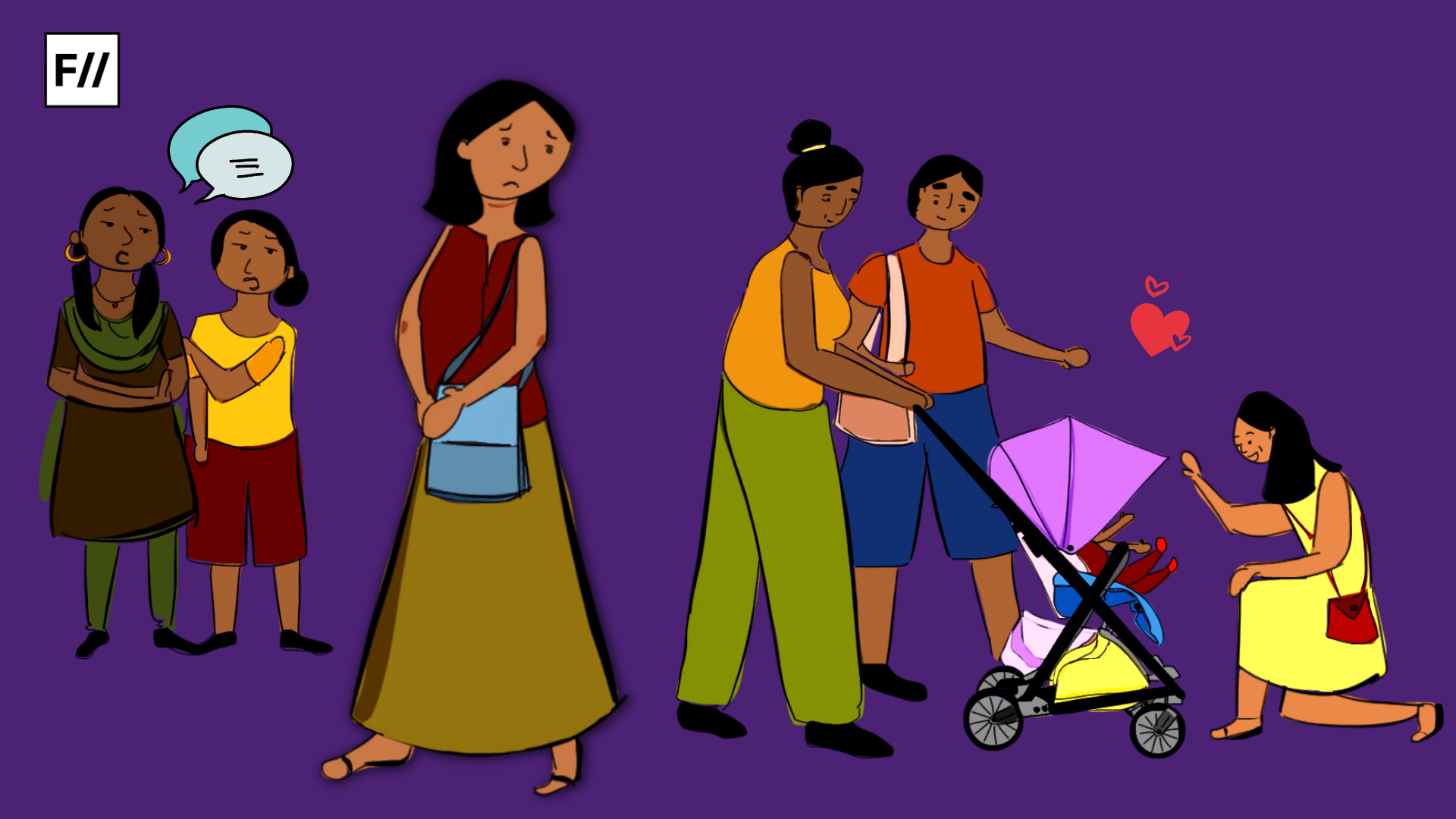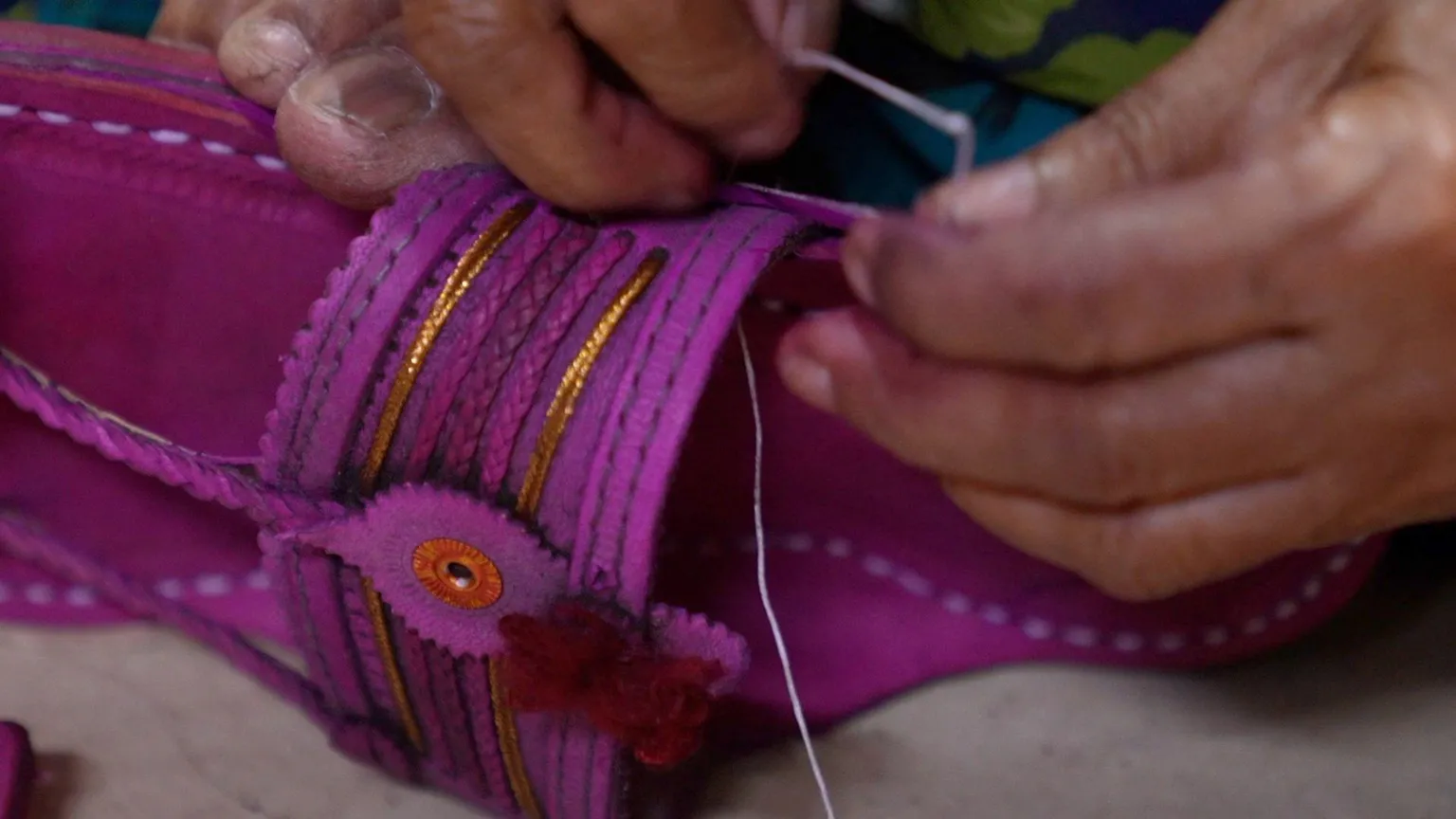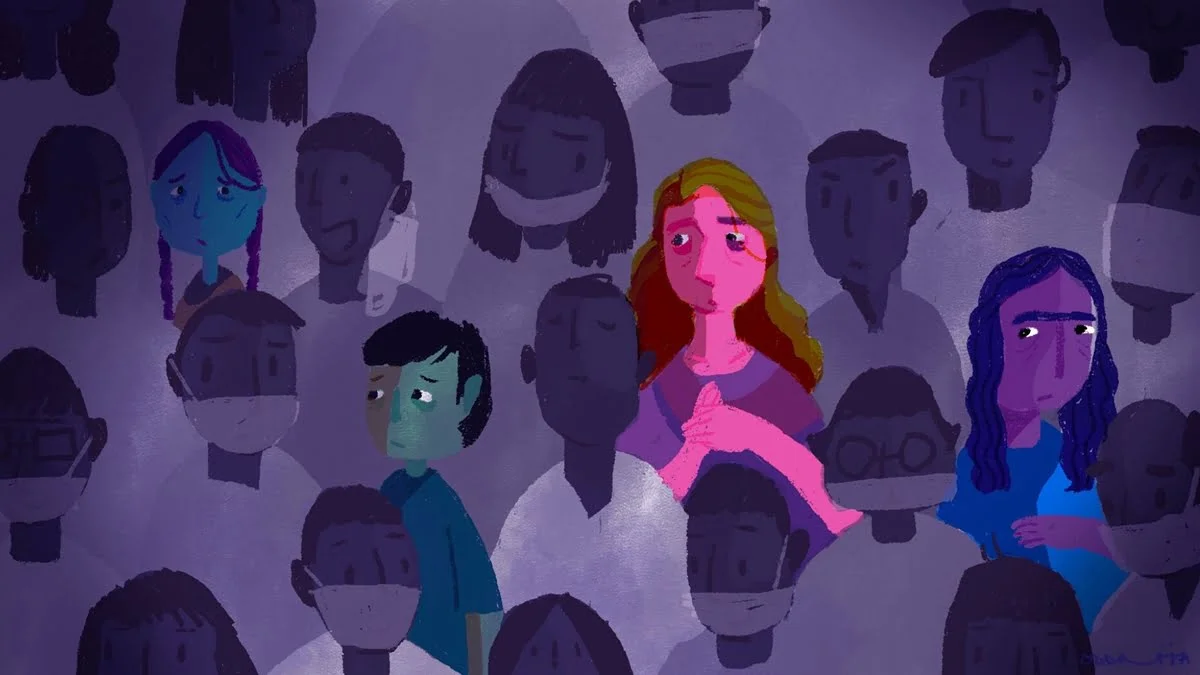“You will want to have kids once you fall in love with the right person,” said my friend when I, almost obnoxiously, told her that I would never have kids. “You’ll see, when the time comes, you are going to be the one to display your desire for kids to me,”- This was told to me by a guy I was head over heels with, a few years ago. “Maybe, we can have kids someday,” I replied to him a few days after he said that.
Coming to think of it now, did I change my stand because I thought that he was the right guy for me? Or was it because I, indirectly, was maneuvered into believing that I will need to have kids in future, in the hope that it would give me “the perfect family”?
A woman’s individuality has more than often been associated with her biological identity, which is further correlated with her fecundity. This also draws a line between a cisgender woman and a trans woman, making the idea of womanhood binary, restrictive and petty. While all women my not want to mark their opinions on this, it would not really be a blow in the bubble to argue that women who prefer not to have kids hold their thoughts back rather surreptitiously.
When asked if they have witnessed someone being discriminated against for not bearing children or being infecund, all the ten women replied affirmatively. I have personally witnessed an event where a woman was reluctant to allow another to participate in a religious ceremony assuming her to be infertile and therefore, inauspicious. Isn’t this one of society’s ways to indirectly indicate or pressurise a woman to bear children?
What makes this scenario much more complex than it appears is the consistent gaslighting by peers, life partners and the other family members, who reinforce that children have the potential to save a failing marriage, rehabilitate depression, complete their family nd the like. However, amidst the cacophony of the constructed importance of a child in a woman’s life, her own opinions get subjugated almost seamlessly.
Women who clearly express their unwillingness to have children are expected to have a change in opinion after marriage, and in various situations this change occurs due to coercion. In this context, it is important to ask a few questions – Do women really get to have a say about their own pregnancy? Are the child-favouring, so-called well-wishers benefactors or detractors? More importantly, is it fair to try and change a woman’s mind about having children?
Also read: Infertility Advertisements: Reinforcing Gender Roles Through Reproductive Desire

These questions prompted me to have a discussion with a few people, and eight out of ten women (between the age of 23-25) I interacted with, want to have a child sometime in the future. However, when asked if they think that the society is in any way responsible for creating a desire in them to become mothers some day, six of them replied affirmatively. The other two stated their decision to be purely personal without any involvement of the society’s influence.
Joyashree aged 25 states, “I want to have children not because I am a woman and have to be a mother, rather, it is a personal choice as I possess the ability to give birth and therefore, want to experience motherhood and raise kids.” The essence of coherence in this statement makes the association of a woman transcending into motherhood quite sublime, and the statement itself is thoroughly indubitable. However, a question is to be raised when the remaining six women felt that the society has some part to play in influencing their decision to have children.
When asked if they have witnessed someone being discriminated against for not bearing children or being infecund, all the ten women replied affirmatively. I have personally witnessed an event where a woman was reluctant to allow another to participate in a religious ceremony assuming her to be infertile and therefore, inauspicious. Isn’t this one of society’s ways to indirectly indicate or pressurise a woman to bear children?
Even if we assume that the desire to have children is biologically wired into women, a woman being pilloried by people for not reproducing is serious injustice, which ultimately indicates the impact of social pressure and gender roles on a woman’s decision to give birth. Women are put on a pedestal by glorifying their capability for nurture and motherhood. This not only dehumanises women who do not wish to birth or mother, but also reinforces gender stereotypes, violates bodily autonomy and cements heteronormative structures
However, to form an unbiased opinion, I asked the women if they find it acceptable for a woman to be nudged with the pros of having children by her husband and other family members so that she can make up her mind to have one. I specifically mentioned just the pros because the cons are often vanquished under the familial desire of a seeing a giggling child in the front yard of the house. In response Joyashree states, “Some women might be afraid of being a mother because of their minimal insights about the experience of having children. Therefore, educating them about that aspect along with some mental support might help them to make the right decision… whether to have a child or not.”
On the other hand, 23 year old Anchala states, “It is always first about the choice and individual contemplation of the mother to decide whether to have children or not, and then communicate it to her partner.”
While I hold no disregard towards the statement made by Joyashree, my opinions significantly match with those of Anchala’s. But irrespective of that, in all situations, the decision to birth must be the decision of the woman without any influence, manipulation or worse, gaslighting.
Even if we assume that the desire to have children is biologically wired into women, a woman being pilloried by people for not reproducing is serious injustice, which ultimately indicates the impact of social pressure and gender roles on a woman’s decision to give birth. Women are put on a pedestal by glorifying their capability for nurture and motherhood. This not only dehumanises women who do not wish to birth or mother, but also reinforces gender stereotypes, violates bodily autonomy and cements heteronormative structures.
Also read: Surrogacy Regulation Bill 2019: Altruism Or State Control Of Bodily Autonomy?
Binita Dey has recently completed her Masters in Economics from Dibrugarh University, Assam. She spends most of her time contemplating a world ruled by prose and poetry instead of politicians and patriarchy. She is a part-time PhD aspirant, and a full-time nail-chewing worryguts. You can find her on Instagram.
Featured Image: Ritika Banerjee for Feminism In India




